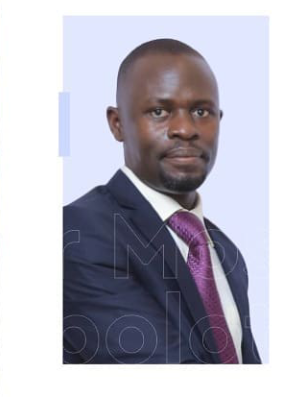By Ibidunni Banjoko
Moses Opolot, an Accredited PR Practitioner and Tutor, Chartered Institute of Public Relations (CIPR) UK, who is also Chief Executive Officer, Close Touch Group, Uganda, has said that for PR practitioners to remain relevant, they must be seen to be adding value with their thought and ideas. He highlighted that PR experts must be also seen to be providing solution to the entities they work for, as opposed to simply drawing up activity budgets and spending time coordinating events and other activities.
Mr. Opolot said this during the African Public Relations Association (APRA) first Webinar Series for the year 2021, which had the theme, “Analysing the Role of Public Relations in Managing Regional Conflicts on the African Continent.
He argued that most regional conflicts are born out of divergent ideas, interests or persons with competitive or opposing views. He stated that the ability to identify and handle conflicts sensibly, fairly and efficiently is what a PR expert needs. “It’s not about the absent of conflicts but rather the ability to understand and restore them,” he said.
The PR expert cited one of the African Union’s most recent themes, “Silence the Guns By 2020” which was crafted around efforts to establish a peaceful Africa. Targeted key conflict hotspots on the continent include DR Congo where people were being killed and displaced in millions.
While expatiating more on the Role of PR in conflict management, he mentioned that PR is the eye and ear of entities. “Every PR practitioner must have the ability to identify a developing conflict. Seeking the early signs is fundamental in conflict management and PR experts should proactively attend to these early signs,” he advised.
“PR is most effective when the senior PR manager is a member of the dominant coalition where he or she is able to shape the organisation’s goals and help determine which external publics are most strategic,” Mr. Opolot noted.
“How many of us, PR custodians, carry out research both from emerging and even past issues? How many of us could walk up to our Chief Executives and say look, from my analysis we’ve in the past had issues X, Y, Z…, but this could easily have been avoided if we had done A, B, C… and so going forward, this is what I think we should be doing?” he queried.
He asserted that PR must assess the extent to which the public is aware and actually cares about an issue, suggesting that such move is useful in diffusing a possible issue by attending to it before it snowballs into an actual conflict situation. “PR ought to also identify key stakeholders and how to reach them. Communication of an entity’s policy to these stakeholders may also be helpful. This is beyond just government but also cuts across multinational entities with interests in exploiting a particular nation’s natural resources. The situational theory that routes for the monitoring of both issues and responses is a key driver of this approach.”
Mr. Opolot further argued that in a conflict situation, being rational, impartial and considerate is key for a PR person. “Sticking to face and staying neutral in conflict situations is also very helpful when managing conflict in addition to avoiding being offensive, disrespectful or sending undesirable body language signs. PR is best suited to ensure the delivery of all these parameters which underscores its importance in conflict management.
“Agenda setting and media framing involves routing for an identified issue to be accorded prominence and frequency in mass media. Social concerns raised facilitate policy design and public dialogue. This is major because public attention is highly influenced by media,” he submitted.






Comment
No comments found.